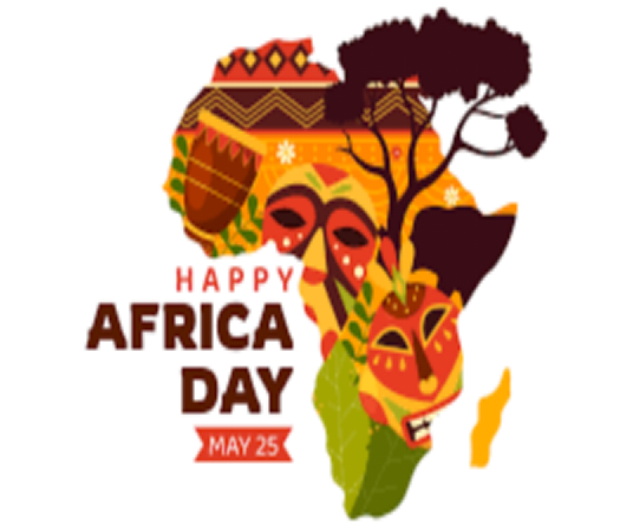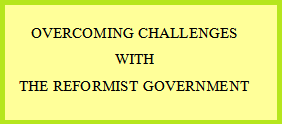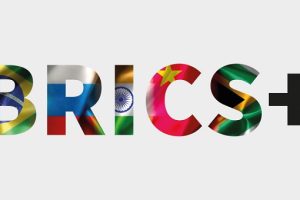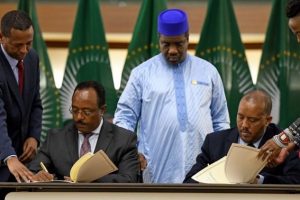
The African Union (AU) lately commemorated Africa Day, marking 62 years since the founding of the then Organization of African Unity (OAU). Established in 1963, the AU has been playing an essential role in fostering unity, peace, and development among African nations, addressing pressing issues from conflict resolution to economic integration.
This year’s theme, “Justice for Africans and People of African Descent through Reparations,” emphasized the urgent need to address historical injustices while forging a future rooted in dignity and sovereignty.
Over six decades, the AU has tried to mediate numerous conflicts, helping to restore peace in war-torn regions. Initiatives such as the African Standby Force and the Peace and Security Council have been instrumental in managing crises, showcasing the continent’s commitment to collective security.
The AU’s approaches to conflict resolution indicate dialogue and diplomacy, which has led to sustainable peace in several member states. In addition to peace efforts, the AU has made strides in economic integration.
The launch of the African Continental Free Trade Area (AfCFTA) in 2021 is a landmark achievement, creating a single market for goods and services across 54 countries. This initiative is expected to boost intra-African trade, stimulate economic growth, and create millions of jobs.
Furthermore, the AU has taken crucial institutional steps to boost trade and investment and stimulate economic growth across Africa. The establishments of the African Development Bank (AFDB) and its support for various projects, notably in road infrastructure and hydropower generation, are significant. The AfDB has also worked to reduce tariffs, a major impediment to intra-African trade, further improving economic ties.
On the global stage, the AU has presented a unified African stance on critical issues such as the global economy and climate change. The Union has effectively advocated for fair compensation to help Africa adapt to and mitigate the impacts of climate change.
Additionally, the AU’s collaborative efforts with international institutions to address Africa’s development challenges are highly encouraging. Recent initiatives to secure a permanent seat on the UN Security Council and amplify Africa’s voice in global media are also positive developments.
While the African continent has shown some developmental progress through the African Union (AU), experts argue that the union has largely failed to effectively safeguard the continent’s interests.
The experts contend that Africa holds abundant natural resources capable of sustaining the global population. However, due to the AU’s limited performance and various other challenges, the continent has struggled to fully utilize its wealth. This inability to harness its resources has sadly resulted in widespread hunger and suffering among its people.
From various armed conflicts and political instability, civil wars, ethnic strife, and violent extremism to widespread poverty and economic inequality, the continent faces a myriad of issues that not only impede development but also disrupt the lives of millions of its citizens.
Aboubakri Diaw, Chief of Staff at the Economic Commission for Africa, previously indicated that over 460 million people in Africa live in extreme poverty, which makes up 55% of the world’s total. He notes that 62% of the global working poor reside in Africa, with over 6 million young people neither in education nor employment.
In sub-Saharan Africa, more than 67% experience food insecurity, and only 17.4% benefit from any form of social protection. Income inequality is stark, with over 75% of earnings going to the top 11%, while the bottom 50% controls less than 10%.
According to the African Economic Outlook, youth aged 15 to 25 constitute over 70% of Africa’s total population. World Bank data further reveals that out of approximately 200 million young people in this age group, 60% are actively seeking employment. Addressing youth unemployment is a critical imperative for Africa’s future.
The effectiveness of the AU has often been hampered by political divisions, lack of funding, and the challenge of enforcing its resolutions. The Union’s 2023 budget, set at 654.8 million USD during a summit in Zambia, highlights a significant dependency on external donors, with over 60% of the budget reportedly sourced from them.
Alarmingly, studies reveal that Africa loses an estimated 50 billion USD annually to corruption. Experts suggest that saving even one percent of this amount could cover the AU’s budget for two years. Corruption remains a significant threat in many member states, coupled with unresolved internal conflicts and pervasive poverty.
Poor quality of education and health services continues to plague the continent. Moreover, the inconsistent implementation of AU resolutions and their limited impact on achieving desired outcomes remain major shortcomings.
Al Jazeera reports that Africa loses more than ten times what it receives in aid and loans due to tax fraud and evasion. This is attributed to loopholes in tax laws, corrupt officials, and a lack of skilled human resources. Strengthening tax collection systems could significantly contribute to Africa’s financial independence.
In his speech at Commemoration event, AU Chairperson Mahmoud Ali Youssef urged bold actions for a fair and prosperous Africa. “While justice and reparations are long overdue, Africa will not be held back by its past,” he stated. He emphasized the continent’s potential, noting its young population, fertile land, mineral resources, and renewable energy.
Youssef described Africa as a rising global power, predicting its population will exceed 2.5 billion by 2050, making it “the engine of global transformation.” He also praised the innovative spirit of African youth and women.
He pointed out the resilience of African economies, many of which were growing before the COVID-19 pandemic. Africa’s increasing role in global governance was another key point, with Youssef celebrating the continent’s inclusion in the G20 as a significant acknowledgment of its importance.
He stressed the importance of initiatives like the African Continental Free Trade Area (AfCFTA) for promoting economic independence and integration.
Ethiopia’s State Minister of Foreign Affairs, Ambassador Hadera Abera, reiterated Ethiopia’s commitment to Agenda 2063 and emphasized stronger connections with the African diaspora. He noted that reparatory justice is essential for dignity and equality among African people.
“Unity among African nations is more critical than ever,” Abera said, highlighting the need to tackle issues like climate change and youth unemployment together.
Rita Bissoonauth, Director of UNESCO’s Liaison Office to the AU, reinforced the theme of justice through reparations, stating it’s about reclaiming the future. She announced a high-level UNESCO roundtable on the topic later this year.
In closing, she quoted Thomas Sankara: “You cannot carry out fundamental change without a certain amount of madness. It takes courage to invent the future.”
As Africa Day is celebrated worldwide, the AU encourages all Africans to embrace their identity, seek justice, and work together for a united future.
Besides, the union should tackle corruption, malpractice, and maladministration and promote inclusive practices, actively collaborating with a diverse range of scholars to enhance effectiveness and integrity.
BY FIKADU BELAY
THE ETHIOPIAN HERALD THURSDAY 29 MAY 2025



